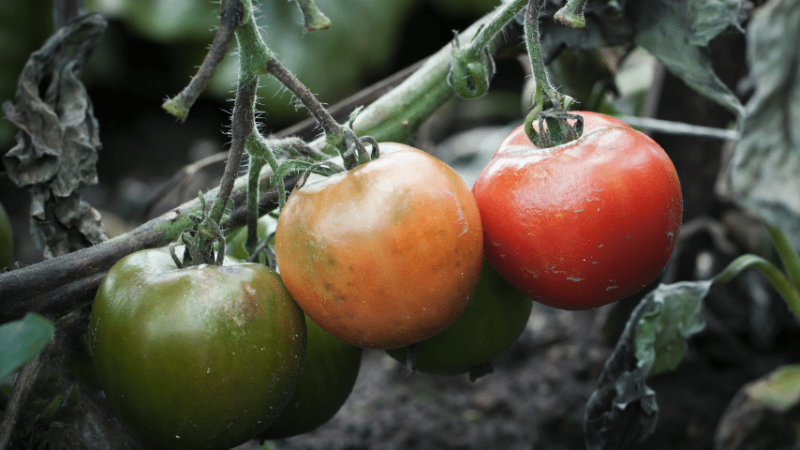Growing tomatoes is a careful process where you cultivate many different types of tomatoes.
It can be very frustrating with all the effort it takes to grow your tomato plants when you find that pests have been eating your tomatoes.
Pests can go after your tomatoes when you least expect them.
When you go out to check your tomato plants in the morning, you may notice that your tomato plant’s leaves, flowers, or tomatoes themselves have been damaged.
Table of Contents
What is Eating My Tomatoes at Night?
Your tomatoes may fall prey to different pests and animals during the night. Pests that may be eating your tomatoes at night are hornworms, slugs, snails, leaf-cutting bees, cutworms, and potato beetles. The animals that may be going after your tomato plants are rabbits and deer.
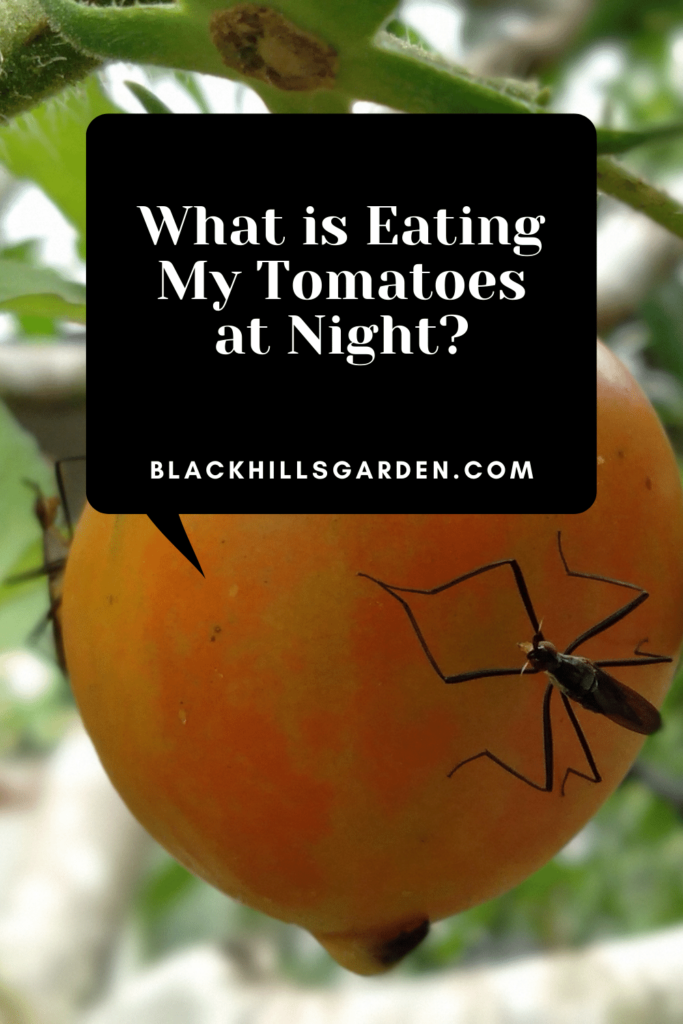
5 Pests That Are Eating Your Tomato Plants At Night
1. Hornworms
Hornworms are one of the most prevalent pests that you will find on your tomato plants when cultivating them.
Hornworms begin, and are most destructible, in a caterpillar form. When in this form, the hornworms are looking to stock up on as much food fuel as possible.
You’ll notice that you have hornworms by looking at your tomato plants from the top down.
Hornworms will start eating the leaves from the top, leaving droppings on the leaves below. They will not only eat the leaves, but also the stems of your tomato plants.
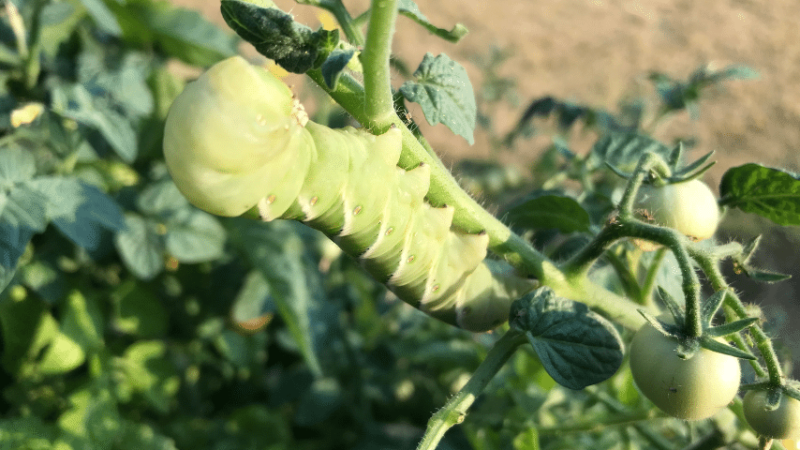
2. Slugs and Snails
Slugs and snails fall under the same class of mollusks. Certain species tend to eat plants in your garden, including tomatoes.
While slugs and snails predominantly eat decaying plant material, they will sometimes eat live plants.
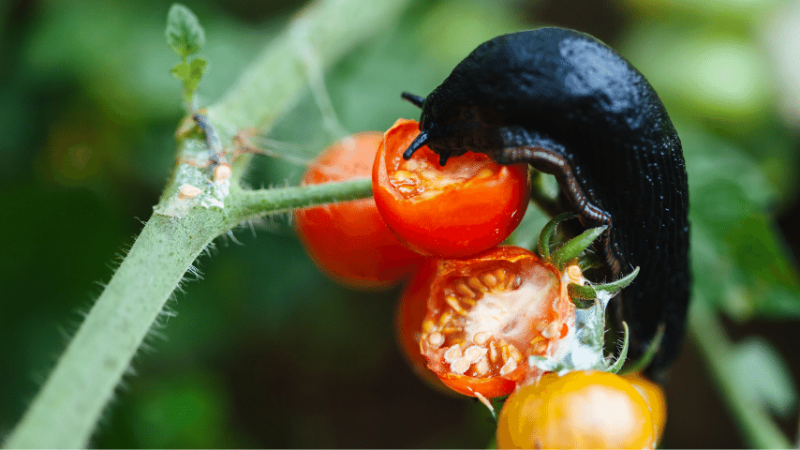
If you’re facing an issue with slugs or snails in your garden, you’ll notice that there are small and ragged holes on your tomato plant leaf edges and the center of the leaves.
You’ll also notice that there are slime trails in your garden.
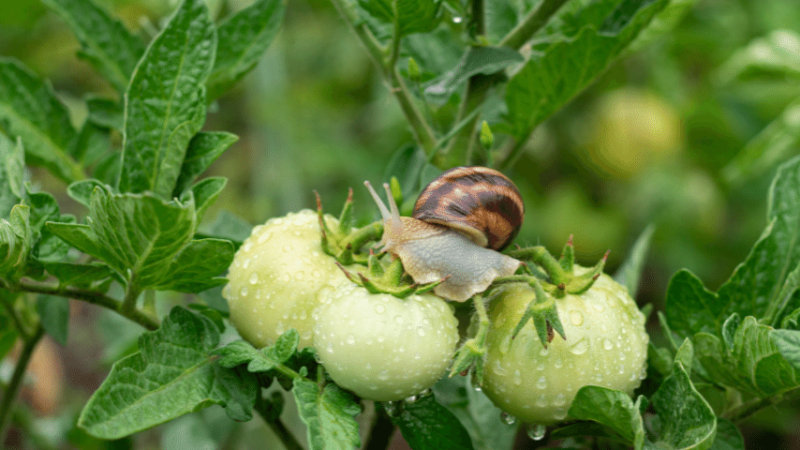
3. Leaf-Cutting Bees
While bees are a benefit to pollinating the plants in our gardens, sometimes they can cause damage.
Leaf-cutting bees can leave large half-moon-shaped cuts out of your tomato leaves. While they will damage your leaves, leaf-cutter bees will not kill your tomato plants.
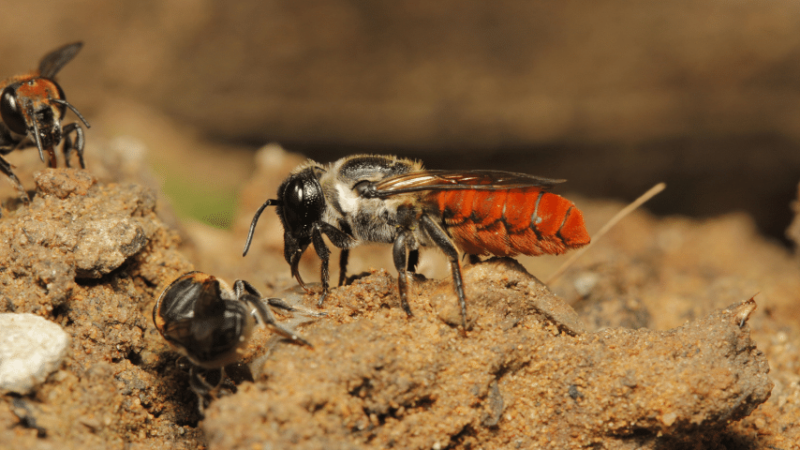
4. Cutworms
One pest that may impact your tomatoes early in the season is cutworms. Cutworms are larva worm-like pests that are most active at night.
They target young tomato plants by eating the stems at the bottom, cutting off the entire plant.
If your tomato plants are more mature, the cutworms will eat holes in the tomato fruit and the leaves.
If your tomato fruit has holes in the lower hanging tomatoes, you most likely have cutworms.
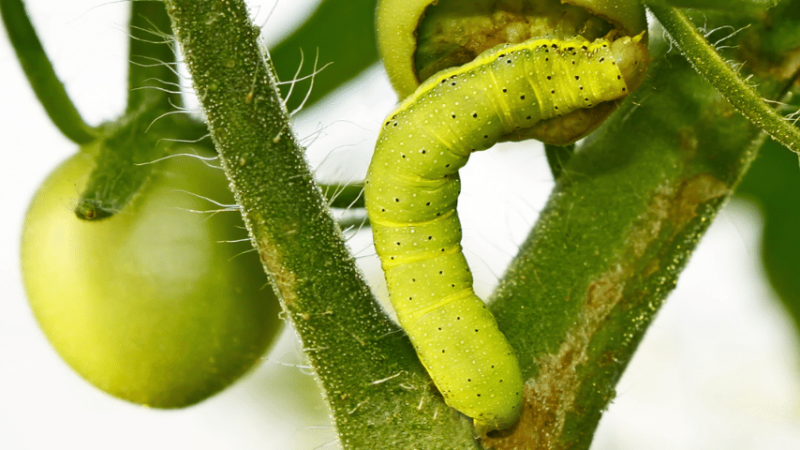
5. Potato Beetles
Beetles that attack nightshade plants are known as potato beetles.
They come out at night. They will target your tomato plants when they are in their large stage. They will eat the leaves of your tomato plants, causing significant damage.
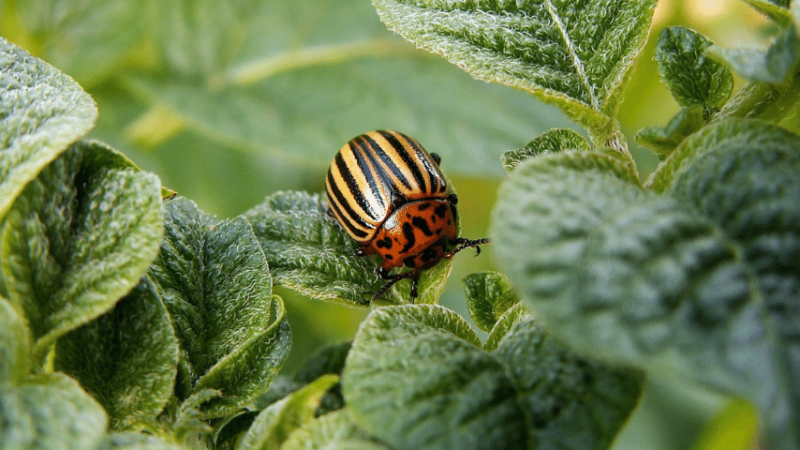
How to Stop Pests From Going After Your Tomato Plants
Repelling Hornworms
While you can use insecticides, insecticides can kill beneficial insects like ladybugs. There are natural ways to remove hornworms.
Checking your plants daily and removing hornworms by hand is the best way to remove them without damaging your tomato plants.
To ensure that you obtain them all, though, you must be extremely vigilant.
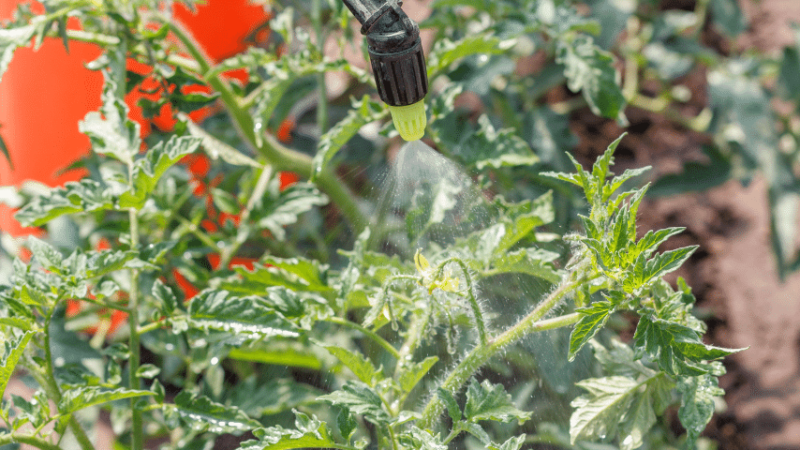
Repelling Slugs and Snails
One of the most effective and affordable methods to rid your tomato plants of slugs and snails is putting coffee grounds around the base of your tomato plants.
Besides repelling slugs and snails, coffee grounds also help your tomato plants grow.
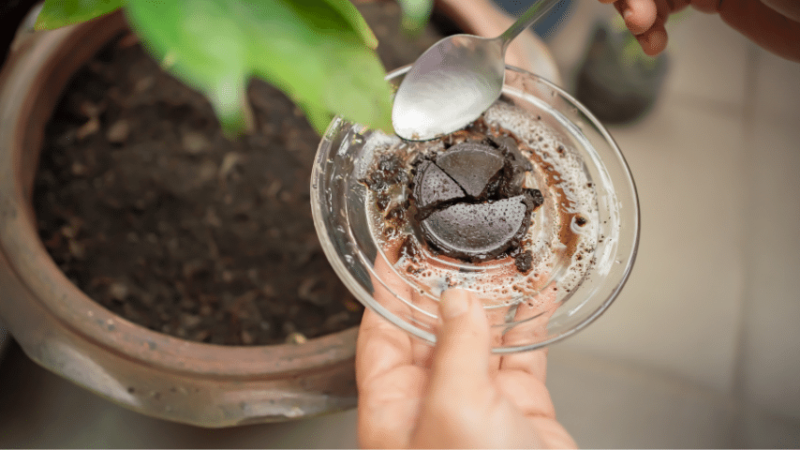
Repelling Leaf-Cutter Bees
When it comes to preventing damage from leaf-cutter bees, you can use insecticides, but with declining bee populations and the benefits that bees provide for your garden, this is ill-advised.
Because leaf-cutter bees will not kill your tomato plants, the damage to your tomato leaves is worth the benefits of the pollination that the bees will provide for your garden.
Repelling Cutworms
If you’re looking to deter cutworms naturally, you can mix crushed eggshells into the soil.
Coffee grounds can also be used as an organic deterrent. If you want to protect your recent tomato transplants, you can make a protective base covered with aluminum foil.
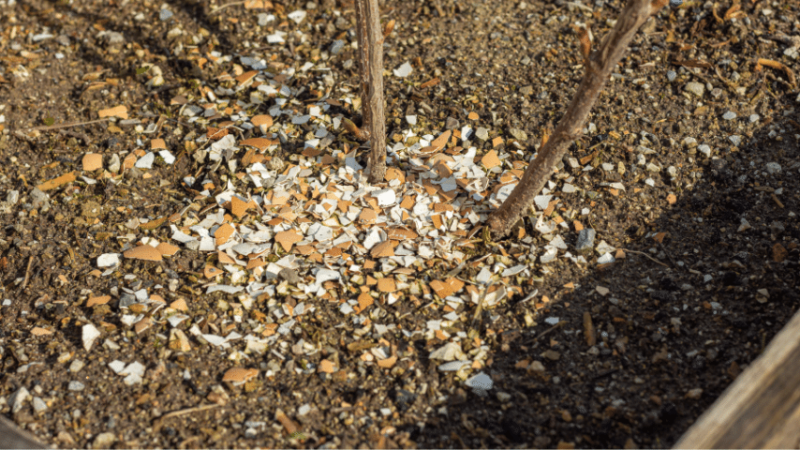
Repelling Potato Beetles
To deter potato beetles, you can spray your tomatoes with neem oil. Neem oil is made up of vegetable oil, fruit, and seeds.
Neem oil is not as damaging as pesticides and will solve your potato beetles.

Animals Eating Your Tomato Plants
Rabbits
When it comes to rabbits eating your tomato plants, they’ll go after them at night. However, rabbits will only go after the tomato fruit.
Wild rabbits will avoid eating tomato leaves and stems because they contain a toxin.
You can tell if rabbits are your problem if your tomato fruit has all been eaten, or if there are nibble marks consistent with rabbit teeth.
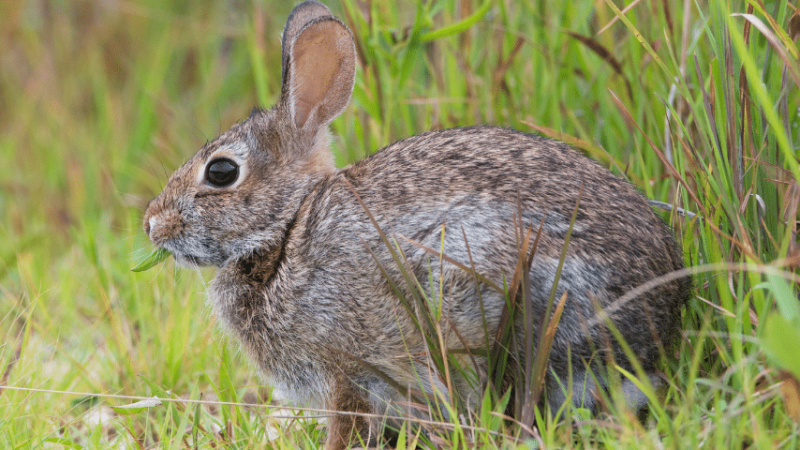
Deer
Deer, on the other hand, will eat the tomato plant’s stems and leaves but not the tomato fruit. Deer will come into your garden at night and munch your tomato plants.
If deer are the culprits eating your tomatoes, you’ll find the tattered remnants of your tomato plants in your garden, but the tomato fruit itself will be uneaten.

How to Stop Animals From Going After Your Tomato Plants
Repelling Rabbits
To stop rabbits from eating your tomato plants, you can make a raised tomato bed.
With your tomatoes out of reach of rabbits, you can also put fencing around your tomato plants at a height that rabbits are unable to jump over.
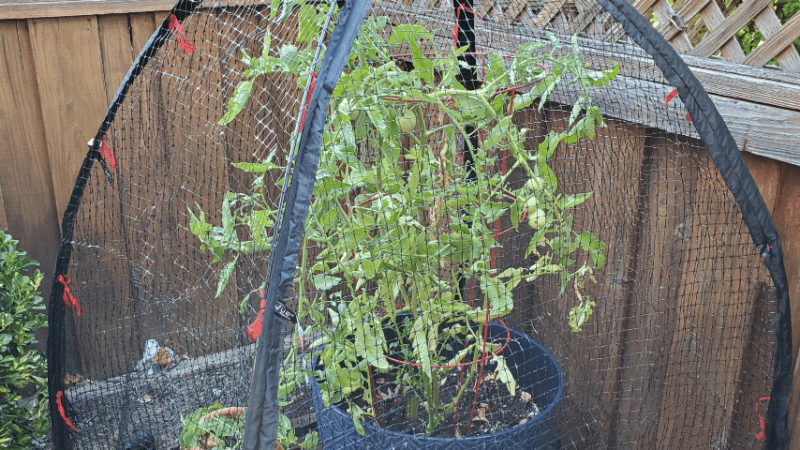
Repelling Deer
Deer are notoriously difficult to keep out of your garden.
With the ability to jump high and get around many different deterrents, deer-proofing your tomato plants should be done with care.
If your tomatoes are in pots, you can put them in an area where deer wouldn’t typically venture, such as on your porch.
If your tomato plants are planted, you need to get secure deer fencing that is high enough to keep the deer from reaching over.
You can also use a garden cloth to cover the top of your deer fence at night.
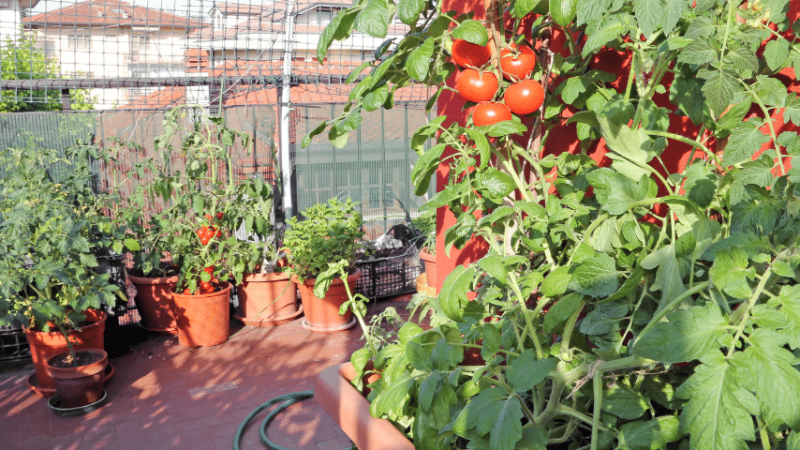
Frequently Asked Questions About What Are Eating My Tomatoes at Night
Should I use pesticides on my tomato plants?
While there are pesticides available for your tomato plants, there are some negatives. Pesticides can kill the beneficial insects that live on your tomato plants.
They can also affect the quality of your tomato fruit.
When are my tomato plants most vulnerable to pests and animals?
Your tomatoes are most vulnerable when they have just been transplanted or are smaller plants.
If they fall prey to pests at this stage in the growing process, they are unlikely to survive.
Conclusion On What is Eating My Tomatoes at Night
When it comes to your tomatoes, you want to protect your plants. At night is when your tomato plants are most at risk from pests and animals.
You may notice that your tomato leaves, stems, or tomato fruit have damage to them.
There are several different natural methods that you can use to deter pests and animals to prevent your tomatoes from being devoured.

